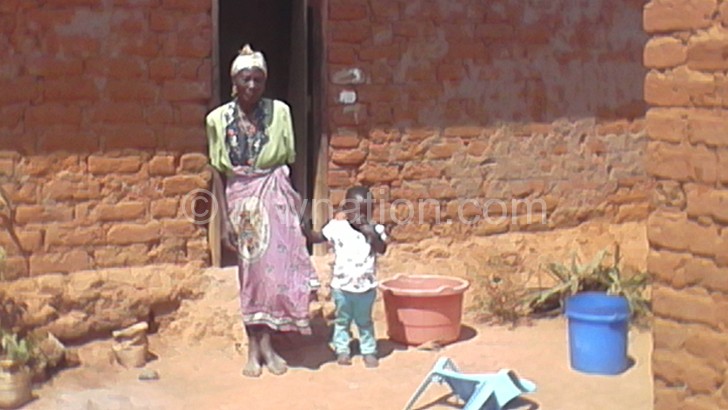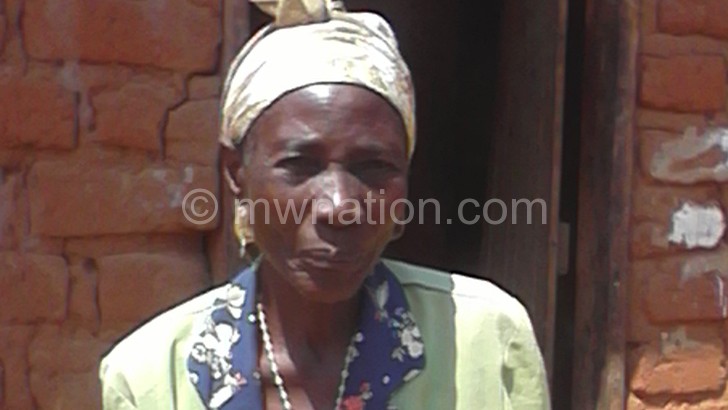Pains of growing old in Malawi
She is 70 years old and has several great grandchildren, five grandchildren from a son and a daughter. Margaret Nkhwazi, commonly known in her area as Anyankhwazi, looks like she was abandoned by her family.
First, it was her husband who left her in 1997 for Tanzania and never came back until he died in 2010. She claims that her daughter, a teacher, scarcely visits, let alone assist her. She last saw her son in 2006 and does not know his whereabouts.

“To say the truth, it is like I don’t have family,” she says.
Nkhwazi, who hails from Kaberani Village in Traditional Authority (T/A) Mtwalo in Mzimba first came to Mzuzu shortly before her husband left her. For a few years, she worked as a housemaid for a teacher, but as she grew older, she became weaker and left the job. She now survives on piecework.
Her efforts to cut the poverty line, by sending the grandchildren to school, seems to be yielding negative results as well.
She says her son’s first-born daughter was taken up by SOS Children’s Village but she deserted school to get married.

“The second born went to stay with her mother and I heard she got married as well. The other one dropped out of Standard Seven and went to get married. The youngest, aged 16, was my hope as St John of God were paying for her fees and providing basic needs,” says Nkhwazi, and adds: “That hope was lost when she also became pregnant and moved in with the boyfriend.”
She has not given up hoping. She is optimistic her grandsons will make it, eventually. One is in Standard 7, the other in Form One at Katoto Secondary School.
On the visit, she was just returning from other people’s gardens, where she was gleaning for sweet potatoes which she would cook for her grandsons.
“Sometimes we go on an empty stomach for days. Sometimes, churches and other well-wishers help us with food and clothing and other basic necessities,” she says, pointing at a wrapper she was putting on, saying an Anti Corruption Bureau staff member gave her at one of their events.
Nkhwazi says she was once told that her name had been listed for social cash transfer but she was later told that her name had been removed and that she will be on public works programme.
“How can they expect me to do that kind of work the way I am? I don’t have that much strength anymore,” she says.
Nkhwazi is not the only one in such a condition. There are hundreds or thousands of elderly Malawians going through the same experiences.
According to a recent report by HelpAge International titled Global Age Watch Index, Malawi is among the six worst places to grow old in, with the others being Zambia, Mozambique, Tanzania, Rwanda and Uganda.
The index measures the quality of life of the elderly basing on four categories: income security, looking at pension and poverty rate; health status that looks at life expectancy; capability covering employment and education; and enabling environment that ranges from physical safety to access to public transport.
In Malawi, according to a review in the national policy for the elderly persons, the elderly face challenges in accessing health facilities, information, transport and nutritious food.
The elderly also face problems like being left to care for orphaned children and being accused of witchcraft.
Mzuzu has a population of elderly people of 133 968 as per the 2012 urban profile.
According to an assessment done by St John of God, 58.5 percent of the elderly are breadwinners. The assessment also showed poverty is the major problem for the elderly.
The assessment also revealed that 88.1 percent of the elderly are idle and that they lack means of generating income.
Mzuzu district assistant welfare officer Mowbray Chibwatiko said government, through social cash transfer, tries to address some of the problems the poor face, including the elderly.
However, not all the poor are benefiting from this initiative. Nkhwazi is an example





